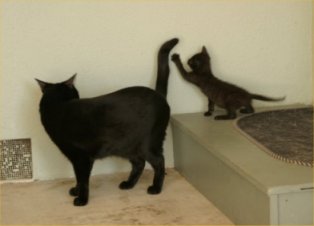The Rev. Alan Jones is dean of Grace Cathedral in San Francisco. Here is his column in Today's San Francisco Chronicle:
It's good to know that word has come down that it is OK to greet each other at this time of year with "Merry Christmas!" The current crop of vociferous atheists have OK'd it, and it's good to see that they are in agreement with those on the political right who want Christmas to be honored. From the atheists' point of view, what is the harm because the holiday is meaningless. It is the winter solstice and we can all -- atheist and believer alike -- enjoy a bit of holiday cheer. I put off Christmas as long as I can (because it does not really begin until Dec. 24) but the pull of the season (as in shopping) gets harder and harder to resist -- all that struggling in a shopping mall, looking for presents that people really don't want.
In our effort to honor the separation of church and state, we get worried around religious festivals and do our best to squeeze out all spiritual significance. In spite of the recent rehabilitation of "Merry Christmas," some of us have a sneaking feeling that it would be better to greet each other with the generic "Happy Holidays!" rather than "Merry Christmas." Better Frosty the Snowman than the crèche. Better the Sugar Plum Fairy than the Shepherds and the Magi.
We like the chance for a break from work but are anxious about "beliefs" spoiling the holiday season. We don't want one set of beliefs dominating at the expense of others. In some places, the holiday symbols get all mixed, like the image that once appeared of Santa jolly on the cross in the big shopping district of Tokyo. But maybe we're going about the question of religious symbols and the holiday season the wrong way.
Lurking beneath the surface of our culture, there is a serious error in the way we have come to view the role of beliefs in our lives. I think beliefs and convictions are important, but we tend to put the cart before the horse. Most people still equate faith with believing certain things about God or the sacred. The mistaken idea is that you have to swallow a few correct beliefs before you can embark on the spiritual journey.
It might come as a bit of shock for a priest to admit that I find it increasingly hard always to tell the difference between believers and nonbelievers. The difference that matters to me is between those who are awake and those who are asleep, between those who are open to a change of heart and those who are not. Noted religion writer Karen Armstrong points out, "In all the great traditions, prophets, sages and mystics spent very little time telling their disciples what they ought to believe." They were invited to trust that "despite all the tragic and dispiriting evidence to the contrary, our lives did have some ultimate meaning and value. You could not possibly arrive at faith in this sense before you has lived a religious life. Faith was thus the fruit of spirituality, not something that you had to have at the start of your quest."
It would be great if believers and unbelievers would call a truce and recover this ancient wisdom of inviting people to live a certain way before they were clobbered with doctrines of belief or unbelief. How about leading a compassionate life? How about recognizing the dignity of others? How about showing up at rituals and ceremonies which help us wait before mystery?
So, what about Christmas?
When I am asked questions at this time of year about the divinity of Christ and the status of Mary in the life of faith, I invite people simply to look lovingly at a woman (in the first instance, any woman) with a baby (in the first instance, any baby) in her arms or at her breast, and ask themselves, "In the light of this image, how should I be in the world? How should I behave? How should I treat others and myself?"
As I am touched and moved by the symbols and stories of other traditions, I live in hope that the symbols and stories of my tradition might touch and move others without there being any sense of religious imperialism. A woman holding a baby is hardly threatening, and surely an image that is not owned by any particular religion exclusively. The point is, there's only one family -- a holy family -- and it's us -- all of us together. I mean all of us -- without exception. There's only one ethnic group. All of us -- together, of whatever belief. We're in this together.
Happy holidays!






0 comments: